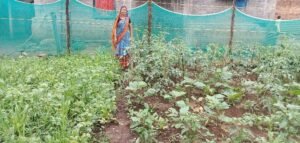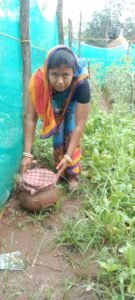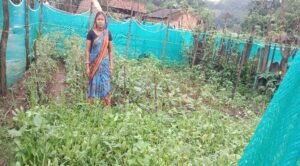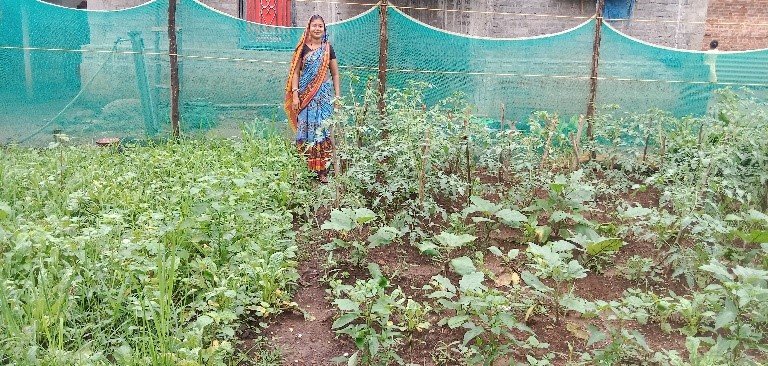Transforming Lives through Kitchen Gardening and Livestock – The Journey of Kapura Tudu
Name: Kapura Tudu
Village: Kathithikana
Family Members: 3 (Husband, Wife, and a 5-year-old son)
Land Ownership: Landless
Occupation: Daily wage labour and collection of forest produce
Kapura Tudu, a resilient woman from Kathithikana, lives with her husband and young son. Her family does not own any agricultural land. mainly depends on her husband’s daily wage work and the seasonal collection and sale of forest produce. With limited income, the family was dependent on the local market for vegetables, spending around ₹210 every week—amounting to nearly ₹10,000 annually—just to meet their basic dietary vegetable needs.

To grow some food of their own, Kapura had taken 0.5 acres of land on lease where they should cultivate paddy during the rainy season. However, the production was limited, and the family continued to face food and nutritional insecurity.
In 2023, with support from Sambandh, Kapura received two goats and kitchen garden inputs like a variety of seasonal vegetable seeds, fencing nets. She also underwent training on compost preparation, organic farming techniques, and effective management of kitchen gardens and livestock.

As a result of these interventions, Kapura began cultivating vegetables throughout the year—successfully growing three seasonal crops using only organic manure and pest control methods. She established a kitchen garden that now not only meets her family’s daily nutritional needs but also produces surplus vegetables which she sells in the local market, generating additional income.
Moreover, the goats she received have become another steady source of income and ensuring a more stable livelihood. Today, through integrated farming and kitchen gardening, Kapura is not only food secure but also economically empowered. Her family’s dependency on market-purchased vegetables has drastically reduced, saving them money while also improving their nutrition.

Kapura Tudu’s story is a powerful example of how small but strategic interventions—like livestock support, organic farming training, and kitchen garden setup—can significantly transform the lives of landless and marginalized rural families.




Leave a Reply